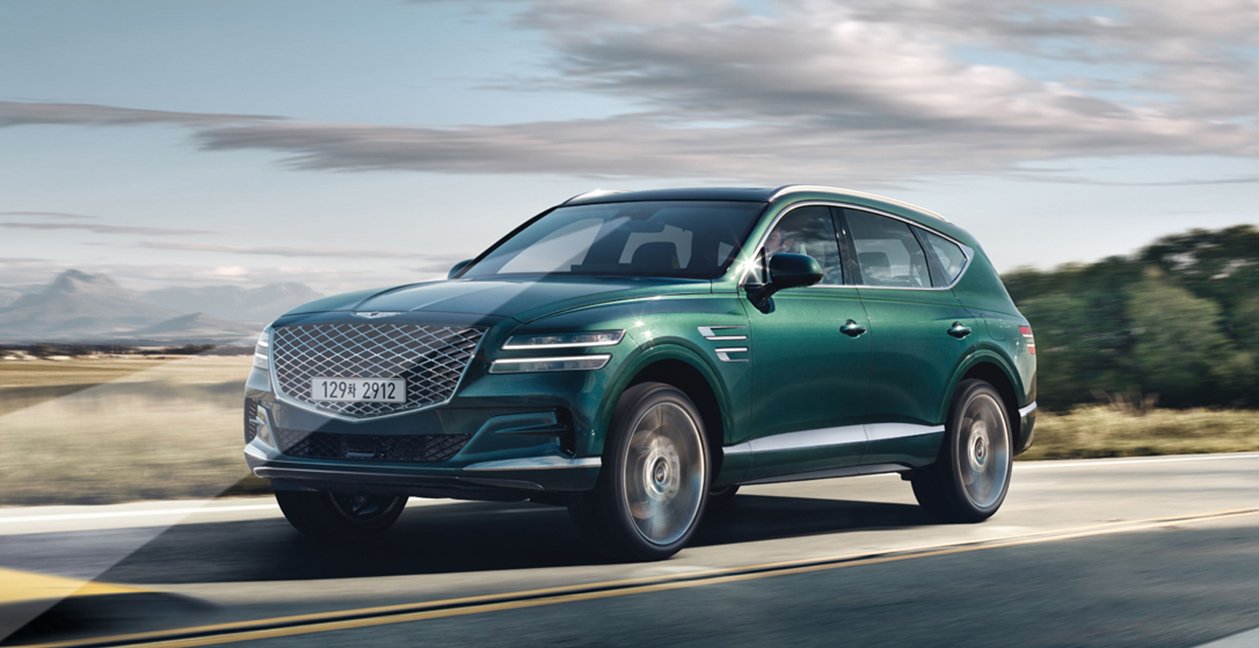Quick, what’s the first thing you think of when you hear “Genesis”? The Old Testament? Or, for a slightly more-current reference, a rock band fronted by Phil Collins?
If Genesis doesn’t conjure a mental image of luxury cars, don’t feel bad. The startup brand sold barely 21,000 cars last year, compared with 352,000 for Mercedes-Benz, America’s leading luxury juggernaut. Yet the brand’s sales more than doubled last year, despite a flat market overall. And Genesis is building some of the best luxury cars you may not have heard of. They include the G70, a compact sport sedan that put a bullseye on BMW’s blue-chip 3-Series. That G70 is so handsome and fun-to-drive, and such a compelling value—especially with its optional, 365-horsepower, twin-turbocharged V-6—that the G70 won the prestigious Motor Trend Car of the Year award in 2019, beating out several highfalutin contenders.
Like LeBron James coming home to Cleveland in a Lakers jersey, the G70 might be especially aggrieving for BMW: Its sophisticated chassis tuning and performance bears all the fingerprints of Albert Biermann, the former chief engineer of BMW’s legendary M performance division. Biermann is now R&D chief of the Hyundai Motor Group, which includes Hyundai, Genesis and Kia. (Check out the kickass Kia Stinger he helped create, and prepare to say, “Um, that’s a Kia?”) The automaker, now infamous for its free-agent coups, also lured Luc Donckerwolke, the chief designer of the UK’s ultra-luxury Bentley. The talented Belgian has been elevated to chief design officer and executive vice president for Hyundai Motor Group. Bentley designer Sangyup Lee followed his boss to Genesis shortly thereafter. And Donckerwolke’s over-the-top concept car, the Genesis Essentia—with its transparent hood, butterfly doors and carbon-fiber construction—became the most buzzworthy, critically toasted car of last year’s New York Auto Show. The brand is studying the feasibility of bringing a production version to showrooms.


On the American side, I spoke with Mark Del Rosso, the former head of both Audi and Bentley’s U.S. operations, now leading Genesis Motors America as its new chief executive. At Audi, Del Rosso saw a perennial little sister to Mercedes and BMW become a genuine force, including a remarkable, unbroken 107-month streak of rising sales. It wasn’t long ago that Audi was playing up that underdog status, tweaking the luxury establishment in a series of ads. Del Rosso sees Genesis as a similar disrupter, a fresh attitude it brought to its first-ever Super Bowl ad starring its spokescouple John Legend and Chrissy Teigen.
“We’re only a 4-year-old brand, so why not have a little fun?” Del Rosso says. “We’re not wedded to old ideas and strategies. We want to make luxury fun, approachable and inclusive.”
If Genesis is great at cribbing talent, its earliest products—while still under the Hyundai banner—also seemed cribbed from German brands or Lexus: Competent, budget knockoffs, but with generic performance and bland cookie-cutter designs. That began to change when Genesis was spun off from its Hyundai parent. The brand took some heat for debuting three sedans in succession, not an SUV among them. But the baby-steps strategy was intentional, the brand buying time while it convinced Hyundai dealers, some skeptical, to open stand-alone Genesis stores. (Because who wants to buy a $35,000 to $75,000 luxury car from the same showroom that stocks Hyundai Sonatas and Tucsons?) The company actually stopped building and importing Genesis cars for much of 2018, while it built a dealer network that could deliver pampering, Lexus-style service—including valets that pick up customers’ cars from home or work and return them after they’re serviced. Now, Genesis counts roughly 360 dealers nationwide, doubling its count in barely one year.
As importantly, with each new model—and under the tutelage of Donckerwolke and Biermann—Genesis seems to be gaining confidence, putting a more distinctive, individual stamp on their cars. The homages are still there, including quilted-and-stitched leather familiar from Bentley, Audi and other VW Group luxury brands. But Hyundai’s design language is evolving and coalescing in its latest models, including an imposing Crest grille, four-element LED lamps front and rear, and smartly creased bodywork.

The next big test is the 2021 GV80. The brand’s first-ever SUV goes on sale this summer, built on a sophisticated rear-drive architecture (with AWD available, of course) and the optional third-row seat that’s critical to many family buyers. An available twin-turbo, 3.5-liter V-6 should approach or top 400 horsepower. An elegantly understated interior, fast becoming a Genesis signature, combines Asian minimalism with enough top-flight craftsmanship and tech to give the big-name brands pause—especially with the GV80 expected to undercut European rivals by several thousand dollars. The GV80’s adaptive suspension can smooth the ride based on camera data of the road ahead. Seven air cells in front seats adjust to keep fatigue at bay. Cabin noise is analyzed and canceled in real time by digital signal processing.
For all that, Genesis has much work to do to win recognition, and business, from the great mass of luxury buyers. Del Rosso says that current customers definitely aren’t badge-conscious types determined to one-up the Joneses with a familiar designer label.
“We’re seeing early adopters, leaders and not followers, who recognize aesthetics and craftsmanship,” Del Rosso says. Those people, he says, tend to become passionate spokespeople for the cars and brand, a point I can confirm after discussions with several Genesis owners.
Those who would chortle at the idea of a South Korean, Hyundai-linked luxury car might want to recall some history, including Lexus, the now-powerful Toyota brand that was (briefly) dismissed as a luxury wannabe. Hyundai and its sister brand Kia were punch lines a few decades ago. No one’s laughing now: The two brands have stormed up the charts to reach 1.3 million combined sales last year, or one in every 13 new cars sold in America. Considering that track record, and the dream team this new brand has assembled, the word Genesis may soon have people picturing luxury cars, not Phil Collins.






